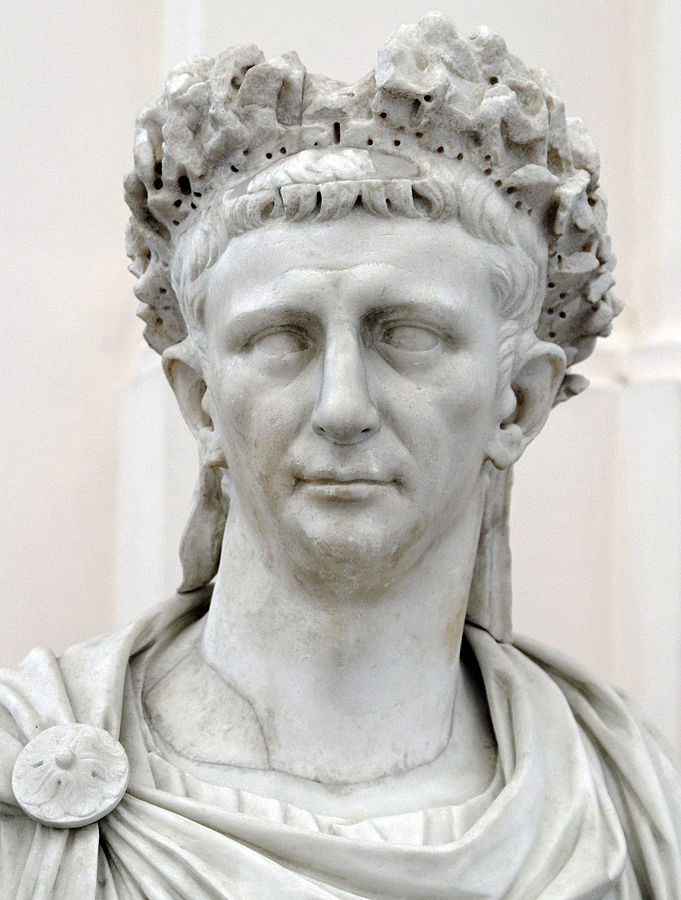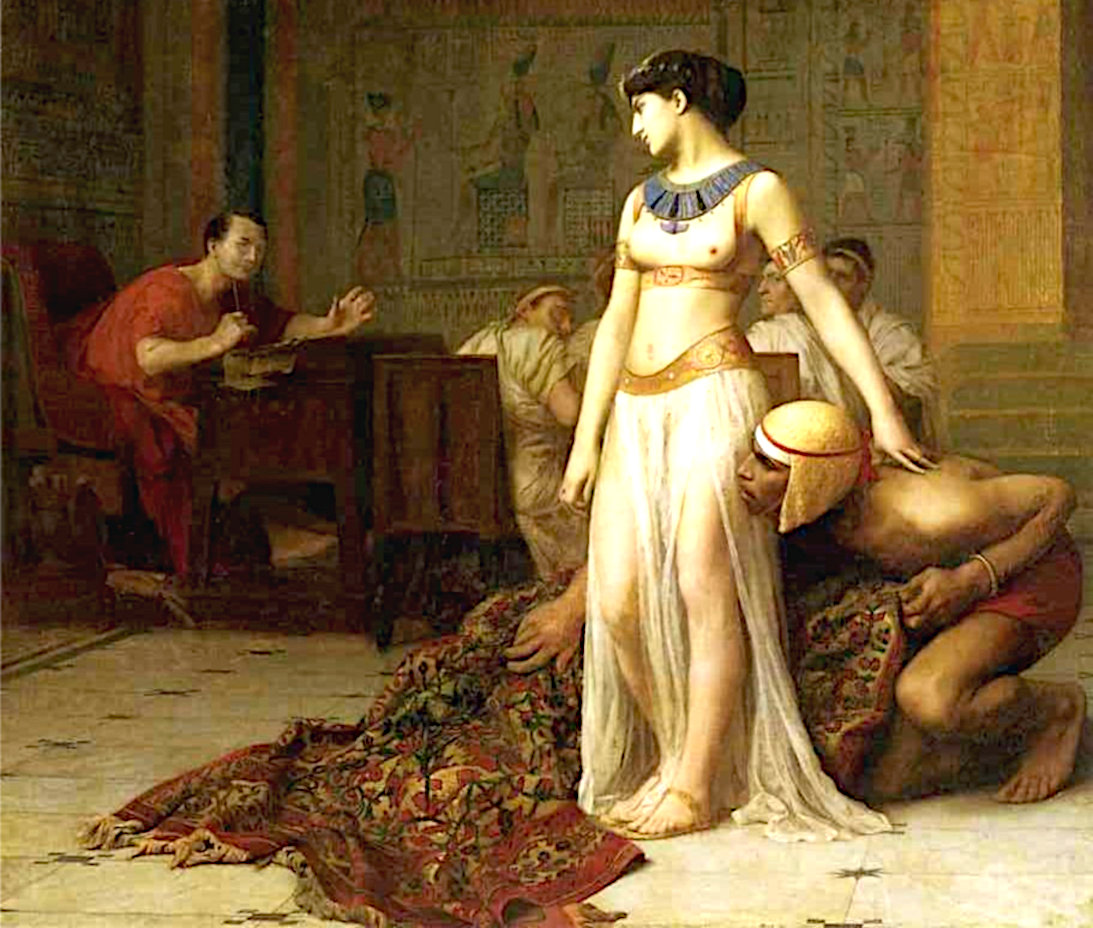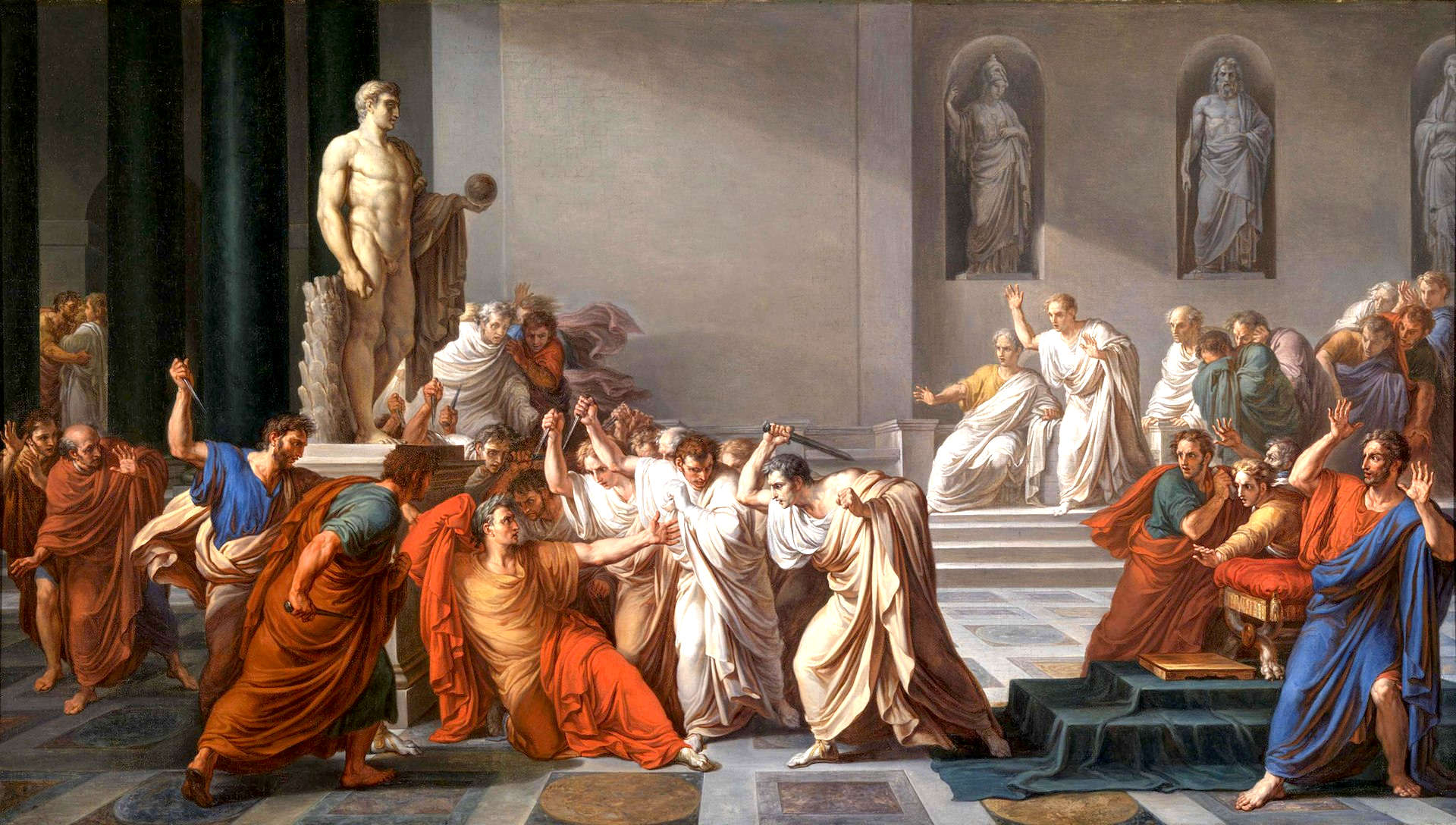
Claudius
was the son of a great chief, Drusus the Elder, who died when Claudius was only one year old and Antonia the Younger. His grandparents were: Mark Antony and Tiberius Claudius Nero, and his grandmothers: Octavia and Livia. He had two older siblings: Germanic and Claudia Julia Livilla.
Tiberius Claudius Caesar Augustus Germanicus (1 August 10 BC – 13 October AD 54) was a
Roman emperor, ruling from AD 41 to 54. A member of the Julio-Claudian dynasty, Claudius was born to Drusus and Antonia Minor at Lugdunum in Roman Gaul, where his father was stationed as a military legate. He was the first Roman emperor to be born outside Italy.
As he had a limp and slight deafness due to an illness he suffered when young, he was ostracised by his family and was excluded from public office until his consulship (which was shared with his nephew,
Caligula, in 37). Claudius's infirmity probably saved him from the fate of many other nobles during the purges throughout the reigns of Tiberius and Caligula, as potential enemies did not see him as a serious threat. His survival led to his being declared emperor by the Praetorian Guard after Caligula's assassination, at which point he was the last adult male of his family.
Despite his lack of experience, Claudius was an able and efficient administrator. He expanded the imperial bureaucracy to include freedmen, and helped restore the empire's finances after the excesses of Caligula's reign. He was also an ambitious builder, constructing new roads, aqueducts, and canals across the Empire. During his reign, the Empire started its successful conquest of Britain. Having a personal interest in law, he presided at public trials, and issued edicts daily. He was seen as vulnerable throughout his reign, particularly by elements of the nobility. Claudius was constantly forced to shore up his position, which resulted in the deaths of many senators. Those events damaged his reputation among the ancient writers, though more recent historians have revised that opinion. Many authors contend that he was murdered by his own wife, Agrippina the Younger. After his death at the age of 63, his grandnephew and legally adopted step-son, Nero, succeeded him as emperor.

Cleopatra
sets out to seduce the Roman Emperor
Claudius, the Roman Emperor, did have children who survived. His most notable offspring included Britannicus (his son with Messalina) and Claudia Antonia (his daughter with Aelia Paetina). Unfortunately, Britannicus died young, and Claudia Antonia was executed.
Claudius married Agrippina the Younger (his niece), but they did not have biological children together. Agrippina's son from her previous marriage,
Nero, was adopted by Claudius and became his heir.
Given these points, while Claudius had children, their lines did not produce notable surviving descendants that we know of today.
Claudius
had no possible link with
Cleopatra, since
she famously poisoned
herself with an Asp
in 31BC. Many years before this Roman Emperor came on the scene.

The long and cruel reign of
Caligula led to the despot being finally murdered on January 24, 41 CE. After Caligula was murdered, in the ensuing confusion some of the soldiers of the Praetorian Guard decided to proclaim Claudius, the only adult representative of the Julio-Claudian dynasty. Soldiers and important personalities feared the reaction of Caligula’s guard of 300 powerfully built Germans who had no qualms about killing the population. Supposedly, when Claudius was found behind a curtain, the praetorians raised Claudius and made him emperor, against his will. The Germans entered the box in which Claudius was, knelt down and promised him faithful service and protection. Despite initial opposition, the Senate, aware of its powerlessness over the soldiers, approved his status. For the first time, the true character of the principate was so clearly revealed – the power of the emperors was based on military strength.
This
scenario is played out in the fictional film Gladiator.
A superb movie, though historically inaccurate, a great story nevertheless.
DISABILITY
The historian Suetonius describes the physical manifestations of Claudius's condition in relatively good detail. His knees were weak and gave way under him and his head shook. He stammered and his speech was confused. He slobbered and his nose ran when he was excited. The Stoic Seneca states in his Apocolocyntosis that Claudius's voice belonged to no land animal, and that his hands were weak as well.
However, he showed no physical deformity, as Suetonius notes that when calm and seated he was a tall, well-built figure of dignitas. When angered or stressed, his symptoms became worse. Historians agree that this condition improved upon his accession to the throne. Claudius himself claimed that he had exaggerated his ailments to save his life.
Modern assessments of his health have changed several times in the past century. Prior to
World War II, infantile paralysis (or polio) was widely accepted as the cause. This is the diagnosis used in Robert Graves's Claudius novels, first published in the 1930s. The New York Times wrote in 1934 that Claudius suffered from infantile paralysis (which led to his limp state) and measles (which made him deaf) at seven months of age, among several other ailments. Polio does not explain many of the described symptoms, however, and a more recent theory implicates cerebral palsy as the cause. Tourette syndrome has also been considered a possibility.
As a person, ancient historians described Claudius as generous and lowbrow, a man who sometimes lunched with the plebeians. They also paint him as bloodthirsty and cruel, over-fond of gladiatorial combat and executions, and very quick to anger; Claudius himself acknowledged the latter trait, and apologized publicly for his temper. According to the ancient historians he was also excessively trusting, and easily manipulated by his wives and freedmen, but at the same time they portray him as paranoid and apathetic, dull and easily confused.
Claudius's extant works present a different view, painting a picture of an intelligent, scholarly, well-read, and conscientious administrator with an eye to detail and justice. Thus, Claudius becomes an enigma. Since the discovery of his "Letter to the Alexandrians", much work has been done to rehabilitate Claudius and determine the truth.
By
way of reward for becoming Emperor, he awarded prize money to the praetorians and also cancelled the newly introduced taxes. He also announced an amnesty. He dismissed from exile, among others Caligula’s sisters – Liwilla and Agrippina the Younger. In addition, on the initiative of Claudius,
confiscated goods were returned to their former owners, slaves and informers were punished. He forbade the organization of lawsuits for insulting majesty. Claudius turned out to be a modest and accessible ruler, not caring about honouring his name. According to sources, he did not use the title “Emperor”, he also refused to accept excessive honours.
Claudius, wishing to gain military credibility with his power, undertook an expedition to Britain in 43 CE. He sent Aulus Plautius at the head of 4 legions to Britain (Britannia), a land especially attractive because of its many mines and many slaves. Another reason for the invasion was the question of sheltering Gallic rebel groups on the island, thus remaining unpunished against Roman authorities. Claudius appeared on the island only after the main part of the offensive on the island had ended. To increase the strength of his troops, he took with him reinforcements and specially imported war elephants1. The battles fought on the island quickly brought results and after a few months, the senate guaranteed Claudius the right to triumph. In addition, the emperor was awarded the title of Britannicus, which was used by his son Britain. Fighting on the island continued until 50 CE, when the British chief, Caratacus, was finally captured and imprisoned.
Upon his return to Rome, Claudius celebrated his triumph in 44 CE. During this time, Roman troops managed to capture new provinces: Judea, Licia, Noricum, and Thrace. Campaigns were carried out during the reign of Caligula, but it was only during the reign of Claudius that it was possible to conquer these lands.
MARRIAGE TO AGRIPPINA
After Messalina’s death, the broken emperor did not think about remarrying. However, at the urging of his subordinates, Claudius changed his position. According to ancient writers, the emperor was presented with three candidates for a new empress: Lollia Paulina – Caligula’s ex-wife; Elia – the second wife of Claudius and
Agrippina the Younger – the emperor’s niece. Ultimately, Agrippina was chosen, probably for political reasons and under pressure from the senate. Tacitus and Suetonius argued that Agrippina simply seduced Claudius and had a great influence on him from the beginning. Interestingly, according to Roman law, the marriage of Claudius and Agrippina was illegal, because the possibility of marrying a niece was excluded. Such behaviour was considered incestuous and disgraceful
(incestum). They were usually punished with ruthlessness; in archaic times, incest was punishable by death – thrown from the Tarpeian Rock. In later times, the law was milder and the confiscation of property and deportation to the island were envisaged. In this situation, on the initiative of Vitellius (on Agrippina’s command) in 49 CE, the senate passed a new law – senatus consultum
Claudianum.
Claudius married Agrippina the Younger in 49 CE, making her empress and his fourth wife. Her strong personality dominated the last years of the emperor’s reign. An expression of her increasing political role was the senate awarding her the title of Augusta. She also led to the seizure of Nero – her son from her first marriage, priority in the succession over the British – born son of Claudius. Nero was first adopted in 50 CE, and three years later he married the Emperor’s daughter
Octavia. Claudius, who made many mistakes in his old age, became useless to his wife. In order to take advantage of the situation and place her son on the throne, Agrippina – according to sources – poisoned Claudius with a dish of mushrooms.
Most historians agree that Agrippina the Younger poisoned Emperor Claudius. His removal opened the way for her son Nero to take power, which was her main goal. In order to achieve it, Agrippina the Younger had been preparing for it for several years, as evidenced by her moves.
|



